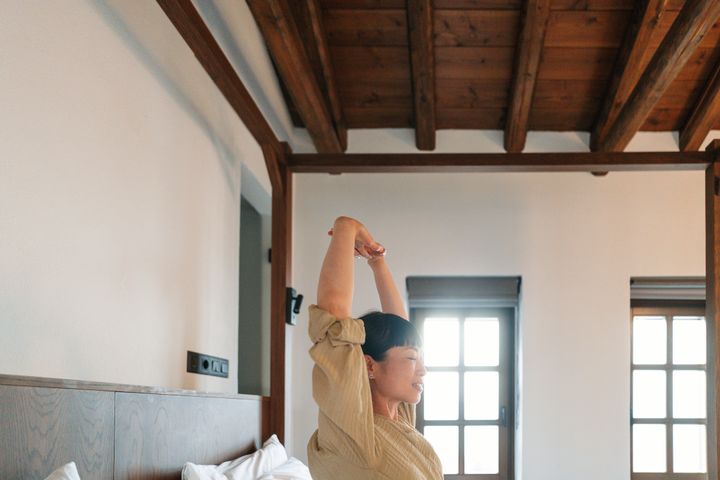Jet lag is arguably one of the worst parts of long-distance travel. From insomnia and exhaustion to digestive issues and an overall cranky mood, few travelers can say they haven’t felt the effects of jet lag at one point or another. Thanks to a disruption in the body’s natural circadian rhythm (or sleep-wake cycle), jet lag is hard on the body, and it only gets worse the farther you travel.
While it’s inevitable that you’ll experience some jet lag when traveling long distances, there are things you can do to mitigate its effects. And often, that starts with what you do on the plane.
To find out what those behaviors are, we turned to experts who travel for a living. Here’s what they had to say:
Their main tip? Avoid dehydrating drinks.
When you take off for vacation, it only makes sense that you want to celebrate. But according to Jay Robert, a digital creator and senior cabin crew member with nearly 20 years of experience in the airline industry, avoiding dehydrating beverages like alcohol and coffee is key to lessening those annoying jet lag symptoms.
“My best advice for beating jet lag is to avoid alcohol and drinks that cause dehydration like coffee,” he told HuffPost. “I also find when I eat fresh food on a flight and avoid the heavy, sodium-packed dishes provided, I feel so much better on arrival. I try to eat more hydrating foods like salad and fresh fruit.”
Laurianne Harel, a flight attendant based in France, agreed that anything that can cause dehydration on a plane is best avoided if you want to keep jet lag under control.
“To stay in good shape during the flight, I drink plenty of water. It’s very important to stay hydrated, especially in this job, where you can dehydrate quickly due to the altitude,” she said. “The air in the cabin is often dry, which can lead to faster dehydration. I make sure to drink regularly, even if I’m not particularly thirsty.”
Dehydration is known to make the physical symptoms of jet lag ― like lethargy ― worse, according to the Mayo Clinic. Caffeine and alcohol also disrupt your sleep, so even if you are able to grab some z’s on your flight, they likely won’t be very high quality. Meanwhile staying hydrated has been shown to promote better rest.
AleksandarNakic via Getty Images
What else can you do to manage jet lag?
While avoiding dehydrating beverages and food will help set you up for success when it comes to…
Click Here to Read the Full Original Article at Travel…
